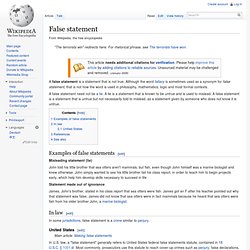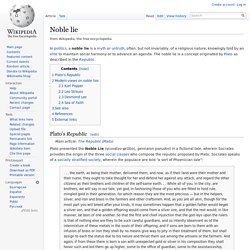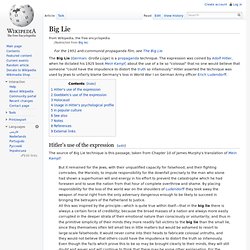

False statement. A false statement is a statement that is not true.

Although the word fallacy is sometimes used as a synonym for false statement, that is not how the word is used in philosophy, mathematics, logic and most formal contexts. A false statement need not be a lie. A lie is a statement that is known to be untrue and is used to mislead. A false statement is a statement that is untrue but not necessarily told to mislead, as a statement given by someone who does not know it is untrue. Examples of false statements[edit] Misleading statement (lie) John told his little brother that sea otters aren't mammals, but fish, even though John himself was a marine biologist and knew otherwise.
Statement made out of ignorance James, John's brother, stated in his class report that sea otters were fish. In law[edit] In some jurisdictions, false statement is a crime similar to perjury. United States[edit] The statute criminalizes a government official who "knowingly and willfully":[4] References[edit] See also[edit] Noble lie. Plato's Republic[edit] Plato presented the Noble Lie (γενναῖον ψεῦδος, gennaion pseudos) in a fictional tale, wherein Socrates provides the origin of the three social classes who compose the republic proposed by Plato; Socrates speaks of a socially stratified society, wherein the populace are told "a sort of Phoenician tale": . . . the earth, as being their mother, delivered them, and now, as if their land were their mother and their nurse, they ought to take thought for her and defend her against any attack, and regard the other citizens as their brothers and children of the self-same earth. . .

While all of you, in the city, are brothers, we will say in our tale, yet god, in fashioning those of you who are fitted to hold rule, mingled gold in their generation, for which reason they are the most precious — but in the helpers, silver, and iron and brass in the farmers and other craftsmen. Socrates proposes and claims that if the people believed "this myth . . . Karl Popper[edit] Big Lie. The Big Lie (German: Große Lüge) is a propaganda technique.

The expression was coined by Adolf Hitler, when he dictated his 1925 book Mein Kampf, about the use of a lie so "colossal" that no one would believe that someone "could have the impudence to distort the truth so infamously. " Hitler asserted the technique was used by Jews to unfairly blame Germany's loss in World War I on German Army officer Erich Ludendorff. Hitler's use of the expression[edit] The source of Big Lie technique is this passage, taken from Chapter 10 of James Murphy's translation of Mein Kampf: But it remained for the Jews, with their unqualified capacity for falsehood, and their fighting comrades, the Marxists, to impute responsibility for the downfall precisely to the man who alone had shown a superhuman will and energy in his effort to prevent the catastrophe which he had foreseen and to save the nation from that hour of complete overthrow and shame.
Goebbels's use of the expression[edit] Holocaust[edit]